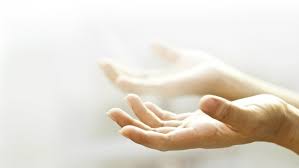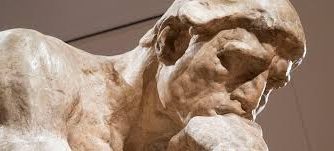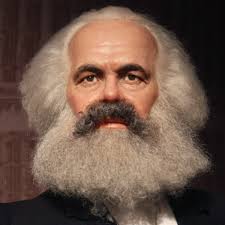I’m so glad the doctor wanted me to have light anesthesia for the three-hour surgery. I don’t think I could have knowingly reclined in the chair that long, with him cutting and scraping tissue from the roof of my mouth, using it to make new gum tissue in front of my four bottom teeth. Every once-in-a-while he’d talk to me, and I’d respond. And every once-in-a-while the pain and pressure were severe enough to make me shift around and moan a little. But he said I was a model patient and everything went perfectly. Thank you, Lord!
Post-surgery prescription—
Recovery usually comes with a winding path, and this recovery was no different.
I knew I was going to have lay low—very low—during recovery. I wasn’t allowed to do any strenuous exercise or activity (I finally found out that their definition for “strenuous” was doing anything that raised my blood pressure. (!) I couldn’t bend over—too much pressure on the surgical site and blood flow into the area. I wasn’t to brush my teeth (ach!), or eat hot foods, or chew on anything hard. Since I don’t do well with aspirin or ibuprofen, he sent me home with several packets of the narcotic Vicodin and a prescription for more. I also got a handful of ibuprofen packets, just in case, but I decided to stick to my liquid child ibuprofen, in small amounts.
Dealing with physical post-op pain—
Even though I don’t like taking pain meds, I did take them. People who take their pain meds to stay on top of the pain, rather than waiting for it to ramp up and get out of control, recover better. And I wanted to recover. And sleep enhances healing. And pain meds encourage sleep.
So I tried to follow his instructions to the letter and then some. I alternated acetaminophen and ibuprofen to manage the pain. I used the little ice gel pack (I got my ice!), ten minutes on and ten off, unless I was sleeping, which ended up happening a lot. I stuck to cold liquid foods the first day. (Cold beef broth is surprisingly tasty when it’s one of only several foods you can take in.) Then came the cold cottage cheese, buckets of cold mac and cheese. Then a little goat yogurt. Even though I was allowed to “chew” on soft foods, I didn’t the first week. When I finally did get around to chewing on really soft chicken and quinoa, it was a catastrophe. So away went the chicken and quinoa.
Dealing with the day-to-day recovery—
And so it went. I wasn’t allowed to pull my lip down to inspect his handiwork, but I had to gently swab diluted hydrogen peroxide on the area twice a day, and I could feel the patchwork quilt he’d sewed into the roof of my mouth. Everything I did revolved around what I needed to do to heal. And, for the most part, that ended up being my meditation.
It made all of the difference in the world having a caretaker to rely on. My precious husband stayed home to work and to see to my needs the first week. “Don’t worry about doing anything. You just had major surgery. You need to focus on recovering,” he kept saying. And that made all of the difference in the world too. Knowing I didn’t have to worry about meeting any deadlines, returning any emails, or making sure things got done. (I did text a lot, which was nice since I couldn’t chat on the phone.)
The positive emotional, physical and spiritual effects—
And after the first week of pain and the pallid skin color that comes with illness, I noticed something. The healthy color started returning to my face. I actually looked healthier than I have in some time. The worry lines started softening along with some of my “older looking” features. My eyes looked brighter, happier, even though I didn’t wear a smear of makeup for three weeks.
While lying in bed one day, I realized how happy I was to be able to focus on one thing, and feel stress-free while doing it. I realized how miserable and worn down physically, emotionally and spiritually I can become on just a day-to-day basis, with an over-scheduled and over-committed life. I realized just how much life, and the way we choose to live it, can drain you of energy, happiness and joy.
Recovery comparisons—
All of this made me think of a friend who battled breast cancer some years ago, a young mom of four.
Her husband—a worship leader—had gotten a job at another church, and we didn’t see much of one another, although I knew she was battling cancer. When my husband and I were out to dinner one night, we ran into her. She was going through chemo, had lost her beautiful mane of dark brown silky hair and was wearing a dark brown wig cut into a cute bob.
But her face looked strained and her body exhausted. Way beyond the look of suffering a cancer patient normally shows when undergoing chemo. When I learned she was still working at the bookstore during her treatments, I asked why. Her shoulders slumped, and her eyes looked sad when she responded. “I have to. To keep my medical insurance.”
I felt horrible for her. My friend couldn’t lean into her treatment or cancer recovery, meditate on it, and focus on victory because she had to work. She had to drag herself out of bed everyday to put in her hours just so she could keep getting the treatment she needed. Not only did she have the stress of severe sickness weighing on her heart and chewing away at her body, she had the emotional and physical stress of maintaining a daily work grind.
My friend finished her treatment, had breast reconstruction and seemed to be doing well. Until the cancer returned, and she passed away. She worked through all of it, and I often wonder: How would she have done if she’d been able to focus completely on her health and recovery? If other burdens had not weighed down her heart, soul and body.
I’ve had other friends who’ve battled cancer in much the same way. Although they didn’t have to work, they lived as though they did. Determined to make sure life went on as usual during an unusual time, they pushed and exercised, and tried to muscle through the treatment. And none of the people I’m talking about survived. They may have seemed to be doing okay, but then the cancer returned or metastasized beyond treatment. The one friend told me she returned to cycling training as quickly as she could in order to get the chemo out of her body.
Now I haven’t done any research on it, but I’m wondering if that kind of approach typically leads to that kind of ending. I know it’s important to do things you love and maintain social contact, and family connection during a time of illness, I wonder if, in our haste to pursue normal or not let anything change our course, we don’t deliberately lean into and meditate on healing as much as we should. Nobody likes pain or problems, and we tend to fight and run from them with all of our being. But maybe leaning into them, meditating on them, and embracing them is the best prescription.
There really is a lot to be learned in the course of an illness and recovery. Maybe wrapping our arms wide around it and working to extract everything we can from the event is the best thing we can do to enhance healing.
To consider—
What are you going through right now that you’d be better off leaning into?
NEXT WEEK I’ll talk about several things I learned and took action to correct—to enhance my physical, emotional and spiritual health now, and in the future!
If you join me this Wednesday for Workout Wednesdays, I’ll give you a brief overview of what went right and what went wrong in the exercise department during my initial recovery.
Until then,
Don’t miss a single meditation opportunity in your life!
Blessings,
Andrea
May you prosper in all things and be in health, just as your soul prospers (3 John 2).




